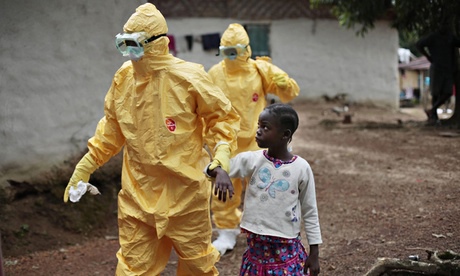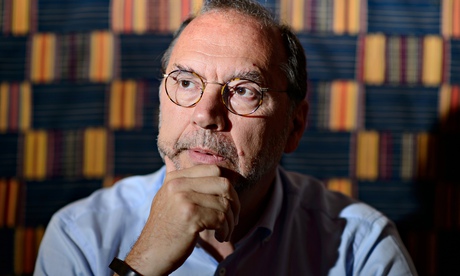Friday, October 10, 2014
topological quantum computing
By
CNu
at
October 10, 2014
0
comments
![]()
Labels: as above-so below , Possibilities , quantum , tactical evolution
Thursday, October 09, 2014
speaking of contact-tracing: how is it that the government can read your emails but not count overseer-inflicted casualties?
By
CNu
at
October 09, 2014
0
comments
![]()
Labels: governance , Rule of Law
cdc recommends hermetically-sealed fema coffins for ebola victims - and has stockpiled them for this contingency...,
By
CNu
at
October 09, 2014
0
comments
![]()
Labels: banksterism , Collapse Crime , domestic terrorism , Livestock Management
why ARE so many deadly viral diseases breaking out all over the world right now?
A nurse's assistant in Spain is the first person known to have contracted Ebola outside of Africa in the current outbreak.
Spanish Health Minister Ana Mato announced Monday that a test confirmed the assistant has the virus.The woman helped treat a Spanish missionary and a Spanish priest, both of whom had contracted Ebola in West Africa. Both died after returning to Spain.Health officials said she developed symptoms on September 30. She was not hospitalized until this week. Her only symptom was a fever.
By
CNu
at
October 09, 2014
0
comments
![]()
Labels: political theatre , scientific mystery , the wattles
Wednesday, October 08, 2014
aaaawwwwwww snap! if this overseer's hot, shit's about to get unbelievably real....,
- Dallas County Sheriff Deputy Michael Monnig went to an urgent care clinic in Frisco, Texas with his wife on Wednesday A witness at the clinic described him as 'hunched over and flushed'
- The deputy was inside the apartment where Ebola patient Thomas Duncan fell ill - the officer wasn't wearing protective clothing
- The CDC said the person is not one of the 48 contacts being monitored
- The CareNow clinic was placed in lock-down Liberian national Mr Duncan, 42, died from Ebola on Wednesday morning
- Sgt Monnig's family said today the CDC had told them that their loved one was not at risk and they were just taking precautions
By
CNu
at
October 08, 2014
3
comments
![]()
Labels: cull-tech , niggerization , Possibilities , What Now?
spanish flu in 1918 brought back by returning WW-I troops killed 1 million americans...,
- QUESTION: Will they be in contact with individuals or just specimens?
- RODRIGUEZ: They come in contact with the individuals.
KIRBY: Afternoon, everybody. I'm proud to welcome into the briefing room General David Rodriguez, commander of Africa Command. He's here to give you an update on U.S. contributions to the effort against Ebola -- U.S. military contributions to the effort against Ebola in West Africa. And with that, sir, I'll turn it over to you.QUESTION: Just a clarification on that, please. Will they be in contact with individuals or just specimens?GENERAL DAVID M. RODRIGUEZ (USA), COMMANDER, U.S. AFRICA COMMAND: They come in contact with the individuals and they do that. And they're -- like I said, it's a -- it's a very, very high standard that these people have operated in all their lives, and this is their primary skill. This is not a -- you know, just medical guys trained to do this. This is what they do for a living.
By
CNu
at
October 08, 2014
3
comments
![]()
Labels: cull-tech , unintended consequences
open mic fail after cdc ebola press conference...,
Where are they, and what can they handle?
Emory University's Serious Communicable Disease Unit is in Atlanta, GA. That's where Brantly and Writebol were treated. It has three beds.
St. Patrick Hospital's ICU Isolation Unit is in Missoula MT. It has three beds.
The National Institute of Health's Special Clinical Studies Unit is in Bethesda MD. It has seven beds.
And the biggest, the Nebraska Medical Center's Biocontainment Unit is in Omaha NE. It has ten beds.
3+3+7+10=23 beds, coast to coast.
So, for the entire country, all 316,100,000+ of us, we're fully prepared to treat 23 Ebola patients at the same time. (For reference, that's how many Ebola patients Liberia had last April. It hasn't gone well.)
But the 316M-person question is, what happens when we have 24?
More happygas, anyone?
"But any major medical center could really take care of an Ebola patient," said William Schaffner, an expert on infectious diseases at Vanderbilt University's School of Medicine.
Most ICUs have isolation rooms that are used for patients suspected to have tuberculosis, SARS, Middle East respiratory syndrome or another infectious disease. Schaffner said that not much would be different for an Ebola patient, though more stringent precautions might be taken to ensure that health care workers are following all protocols.
Why yes, gosh darn it, of course they can!
Just look at how well that worked at Texas Health Presbyterian, a top-tier 968-bed acute primary hospital in Dallas, and a regional healthcare keystone in that city.
They misdiagnosed their first patient.
Their computerized EMR doesn't dump the nurse's triage notes onto the doctor's page, so critical screening information was missed.
They exposed their hospital lab to specimens that weren't safe to handle, because they didn't know Thomas Duncan needed a BL4 response and specimen handling.
They exposed doctors, nurses, staff members, patients, and visitors to Ebola unknowningly.
Which led to inappropriate hazmat cleaning at his home;
the potential exposure of four public schools to the disease, which has necessitated closing them for cleaning while parents keep their children home, some withdrawing them completely;
and on and on, with 18/100/50 (depending on which number is currently operant) people under self-imposed quarantine and monitoring.
And that was a good look at how it's going to go everywhere else, the first time "shit's getting real". It's called the Normalcy Bias. "We've never had an Ebola patient walk in the door, so we never will, and we won't assume otherwise." Because ABCNNBCBS haven't been hawking any news to the contrary for months, right?
There are other problems: as noted yesterday, once you start traipsing highly infectious patients, frequently vomiting and squirting Ebola-laced body fluids everywhere, the hospital is unavailable for any other use.
By
CNu
at
October 08, 2014
0
comments
![]()
Labels: The Hardline , truth
rule of law: reexamining residency requirements for overseers
By
CNu
at
October 08, 2014
0
comments
![]()
Labels: American Original , just-us , Rule of Law
perverse u.s. drug policies promote the justus growth industry
- The U.S. has more deaths from drug overdoses than from car accidents.
- Most are due to prescription narcotics, not street drugs.
- Heroin deaths have also doubled in the past two years because patients first hooked on prescription narcotics often have to switch to cheaper street drugs.
- States that have legalized medical marijuana have many fewer prescription narcotic overdoses than those that haven't.
- Prescription narcotics are gateway drugs creating a new demographic of drug addiction -- older, whiter, suburban, and more female.
- The Sackler family is famous and widely admired for its museum philanthropy; but is also infamous and deserves to be widely despised for its irresponsible drug pushing. Their drug company has been fined more than600 million for its criminal marketing of narcotics. Its pills cause more overdoses than any drug cartel.
- Careless, sometimes criminal, MDs serve the same role for drug companies as corner pushers serve for drug cartels. Just one doctor in California was responsible for 400 emergency room visits.
By
CNu
at
October 08, 2014
0
comments
![]()
Labels: just-us , Rule of Law , What IT DO Shawty...
Tuesday, October 07, 2014
charles ellison again: why the military and not medicine to ebola stricken africa?
By
CNu
at
October 07, 2014
5
comments
![]()
Labels: cull-tech , Living Memory , not a good look , Race and Ethnicity , The Hardline
charles ellison putting in yoeman's work..., ebola-race-class
I
By
CNu
at
October 07, 2014
0
comments
![]()
Labels: cull-tech , Race and Ethnicity , The Hardline
hello, we're from the west and we're here to help you....,
By
CNu
at
October 07, 2014
13
comments
![]()
Labels: cultural darwinism , History's Mysteries , horror , Living Memory , What IT DO Shawty...
in 1976 I discovered Ebola - now I fear an unimaginable tragedy
By
CNu
at
October 07, 2014
0
comments
![]()
Labels: cull-tech , cultural darwinism , Living Memory , scientific mystery
vice news: the fight against ebola
As President Barack Obama announced that he would be sending American military personnel to West Africa to help combat the epidemic, VICE News traveled to the Liberian capital of Monrovia to spend time with those on the front lines of the outbreak.
In Part 1, we meet confused and distressed people trying to receive treatment in the increasingly chaotic city, and speak to an ambulance driver doing his best to aid the sick.
Watch Part 2:
By
CNu
at
October 07, 2014
0
comments
![]()
Labels: cull-tech , hardscrabble , hustle-hard
Monday, October 06, 2014
marburg on the loose in uganda - still pretending this is murphy's law at work?
By
CNu
at
October 06, 2014
1 comments
![]()
Labels: cull-tech , unspeakable
homeless dood infected in dallas riding in the infected ambulance after duncan...,
By
CNu
at
October 06, 2014
0
comments
![]()
Labels: Ass Clownery , cull-tech , not a good look
four thousand american troops in west africa are intended to prevent further outbreak in america...,
By
CNu
at
October 06, 2014
0
comments
![]()
Labels: American Original , institutional deconstruction , tactical evolution , warsocialism
hajj will not be an ebola propagation vector...,
By
CNu
at
October 06, 2014
0
comments
![]()
Labels: The Straight and Narrow , theoconservatism , What IT DO Shawty...
israel needed no ebola to make its position crystal clear...,
By
CNu
at
October 06, 2014
0
comments
![]()
Labels: Race and Ethnicity , What IT DO Shawty...
Sunday, October 05, 2014
even the hittites used "cursed rams" against their enemies...,
By
CNu
at
October 05, 2014
7
comments
![]()
Labels: cull-tech , waaay back machine
Chipocalypse Now - I Love The Smell Of Deportations In The Morning
sky | Donald Trump has signalled his intention to send troops to Chicago to ramp up the deportation of illegal immigrants - by posting a...

-
theatlantic | The Ku Klux Klan, Ronald Reagan, and, for most of its history, the NRA all worked to control guns. The Founding Fathers...
-
NYTimes | The United States attorney in Manhattan is merging the two units in his office that prosecute terrorism and international narcot...
-
Wired Magazine sez - Biologists on the Verge of Creating New Form of Life ; What most researchers agree on is that the very first functionin...






